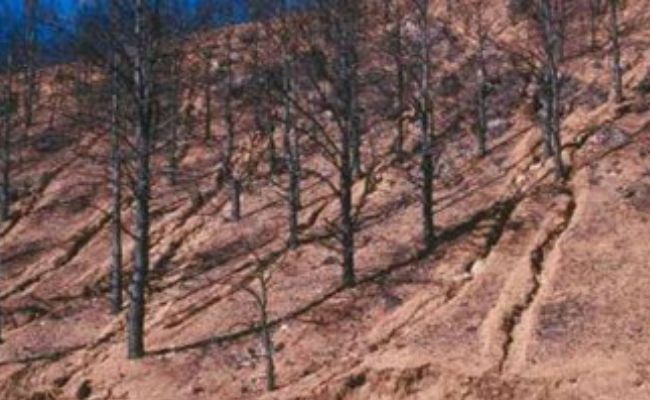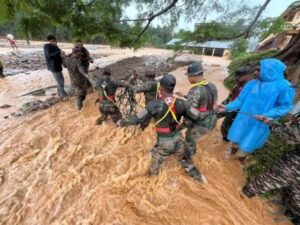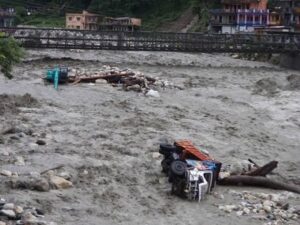INTRODUCTION:-

It is our initiative to put light on control of loss due to Mud and Debry flow in simple English language, so that Insurance Surveyors of the country can understand the risk and can suggest control measures in each and every report, consequently the importance of the profession and IIISLA cane be highlighted. .
WHAT IS MUD FLOW:-
It is important to understand that due to construction of large numbers of big size dams and barrage on river throughout the country the flow of river after heavy rain due to monsoon or cyclone has changed. Due to formation of silt the water storing capacity of the river has reduced due to soil erosion, erosion of embankment. Mud flow is caused to rock sliding in Himalaya region or any soft soil hills. It can also be caused by Forest Fire.
The mud flow is dangerous and causes disaster during flooding and otherwise.
WHAT IS DEBRIS:-
In every flood, cyclone & Tsunami the creation of debris is very common. Debris include big bolders of road, big structure of bridge, river side trees, building, industries, vehicle and even ships and boats.
The debris due to high kinetic momentum cause damage to bridge pillars and other establishment.
HOW TO CONTROL THE MUD FLOW & WILD RISK GENERATED BY DEBRIS:-
If we have to live with river & dam then we have to take following precaution:-
1. Before rainy season with the help of DRONE every government of the country should conduct photographic survey from the top of the forest to identify the debris of the forest fire or debris generated due to land slide. After receiving the detail information about the debris the same should be removed before rainy season so that the debris should not form mud flow & cause severe damage by impact against embankment pillar of the bridge & other sensitive establishments constructed at the side of river.
2. If houses,, industries, bridges & roads are constructed in the area of flooding river special type of construction specifications should be followed to avoid soil erosion of foundation of the building & factories.
If RCC beam, stone, trees, gutter, purling & frame are flowing in the flood then the attempt should be made to divert them at safer place because the debris of high mass and kinetic energy will have an impact against pillar of bridge & it will cause collapse of bridge also.
1. The pillar of every bridge must have protection wall & there should be construction of diverter or handler of the debris in the river before every bridge.
2. In the river because of mud flow, debris flow & sedimentation such as silt, sand & clay that is left behind after a flood event is reducing the depth of the river. We should remove the silt, sand & clay regularly from throughout contour of the river.
Stability check of every civil construction like houses to shop of the industries, road bridge, railway line, electronic tower etc must be conducted and data should be made available to public for information.
There should not be any political interference in checking of stability of existing construction & permission for new construction.
CONTROL INFORMATION:-
Flood prone area like Kosi, Ganga, Mahananda, Damodar & other rivers must have Electronic control & connection of every residence living in the command area.
ROLE OF INSURANCE SURVEYOR:-
We in each and every report must mention the loss minimization steps can be taken by the insured as well in Insurer.
CONCLUSION:-
Now a days losses due to mud flow and impact of debris against the bridges, dam, & other establishment are increasing. Hence it is right time to constitute a committee of all concern including General Insurance Company & Indian Institute of Insurance Surveyors and Loss Assessors. ( IIISLA ) to study & prepare report to control the WILD RISK- like MUD FLOW AND DEBRIS FLOW.
By- SHASHI BHUSHAN, Ex-CHAIRMAN, IIISLA EAST ZONE, COUNCIL MEMBER, IIISLA EAST ZONE




